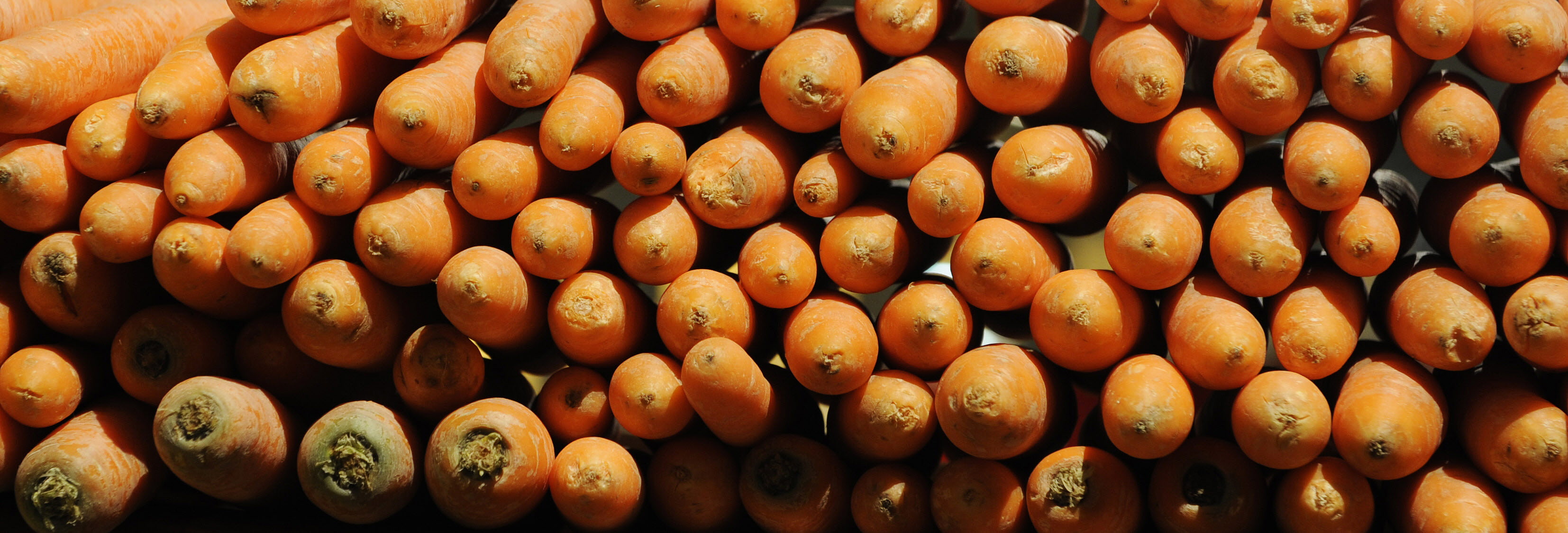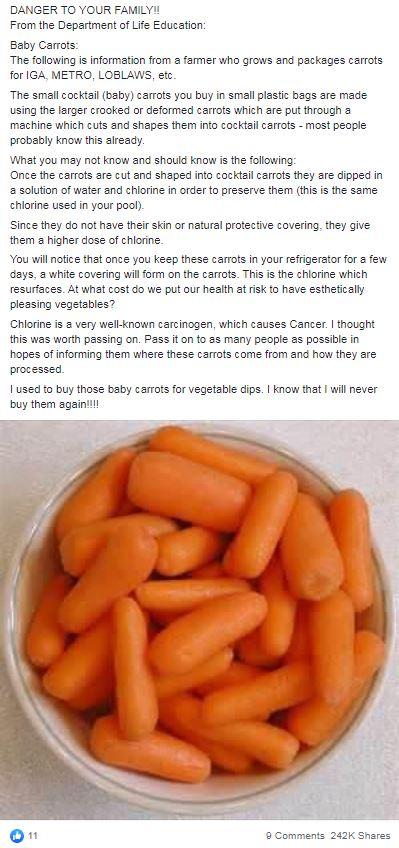
Canada cocktail carrots not a danger to consumers
- This article is more than five years old.
- Published on March 3, 2020 at 21:30
- 2 min read
- By Marisha GOLDHAMER, AFP Canada
Facebook posts, archived here, here and here, specifically warn against the cocktail carrots sold at major Canadian supermarkets IGA, Metro and Loblaws, claiming they are “dipped in a solution of water and chlorine,” and that the “white covering” that may form on the carrots after a few days is the chlorine resurfacing.
The posts vary slightly, but one shared more than 242,000 times concludes: “I know that I will never buy them again!!!!”

But food science experts say the chlorine water wash is both safe and economical for food processing.
“Chlorine is a very effective and safe sanitizer when used under proper conditions,” Dr. Olga Padilla-Zakour, director of the Cornell University Food Venture Center, told AFP by email.
If the water is not sanitized, it could become a source of contamination, she said.
Dr. Elliot Ryser, a professor in the Michigan State University department of food science and human nutrition, told AFP by phone: “Virtually all fresh-cut produce uses a sanitizer. It’s used to prevent contamination from the water to the product. The sanitizer does a good job of killing organisms in the wash water.”
The Canadian Food Inspection Agency (CFIA) website also states that chlorinated wash water is used on a variety of ready-to-eat, fresh-cut fruit and vegetables, in order “to reduce microbial load.”
Alan Hilowitz, spokesman for Bolthouse Farms, a supplier of cocktail carrots to Canadian supermarkets, said in a statement: “The amount of chlorine in the carrot wash water is well within the limits set by the CFIA and is comparable to levels found in tap or drinking water.”
“For fresh-cut produce, the concentration of chlorine in water is very, very low, in the range of 10 to 100 parts per million,” Padilla-Zakour said.
The Bolthouse Farms statement also specified that the chlorine is used during food processing to disinfect the water, not to “preserve the product” as the Facebook posts state.
‘White Blush’
The secondary claim in the posts about a white film sometimes found on carrots is false. It is not chlorine resurfacing on the vegetables.
Health Canada explains here: “White blush is not an indication that there is anything unsafe or unhealthy about the carrots, rather it is a sign that the surface of the carrot has dried out.”
Soaking the carrots in water can temporarily remove the whiteness.
The claim was similarly debunked by the McGill University Office for Science and Society here.
Copyright © AFP 2017-2026. Any commercial use of this content requires a subscription. Click here to find out more.
Is there content that you would like AFP to fact-check? Get in touch.
Contact us
